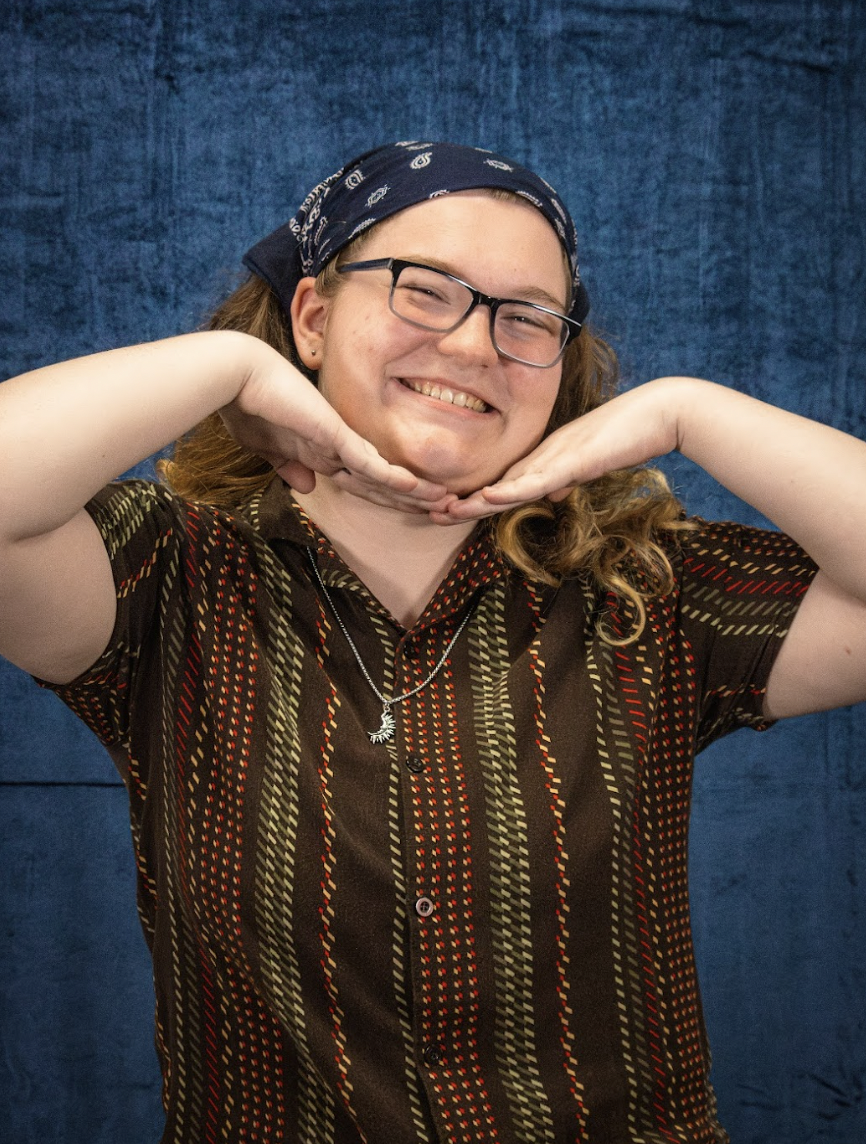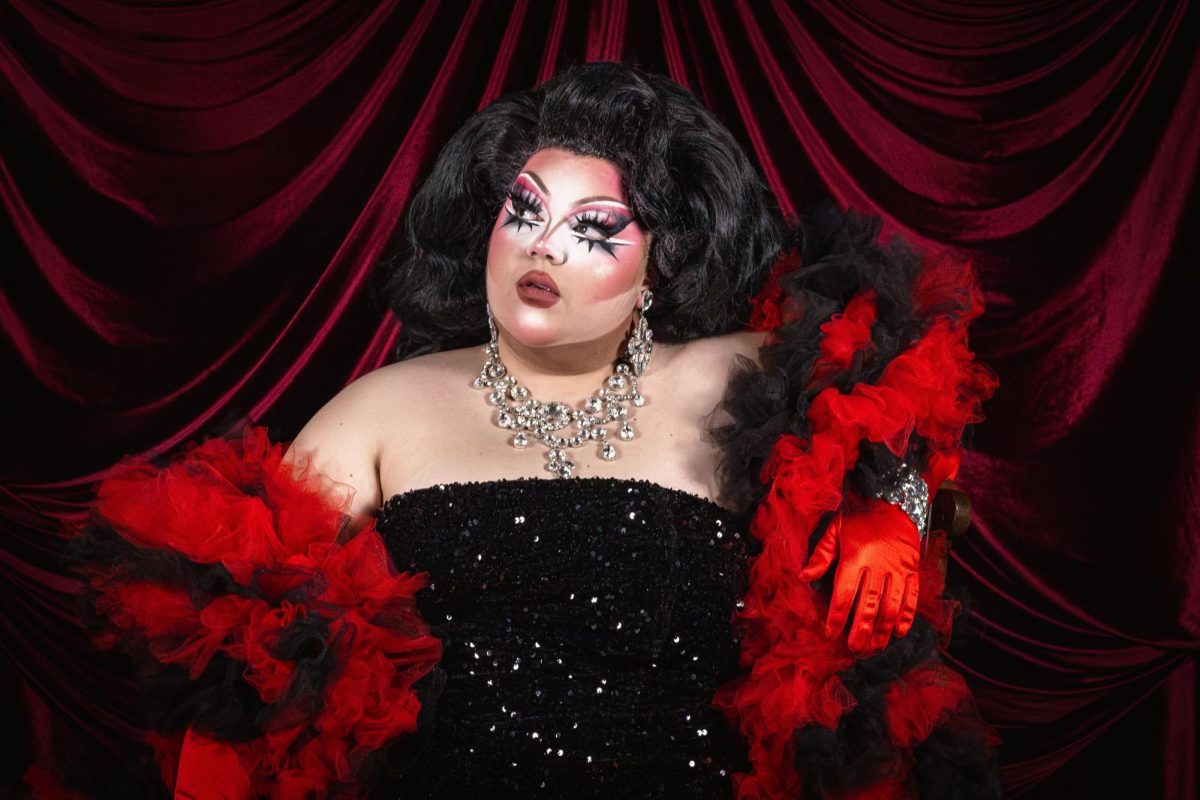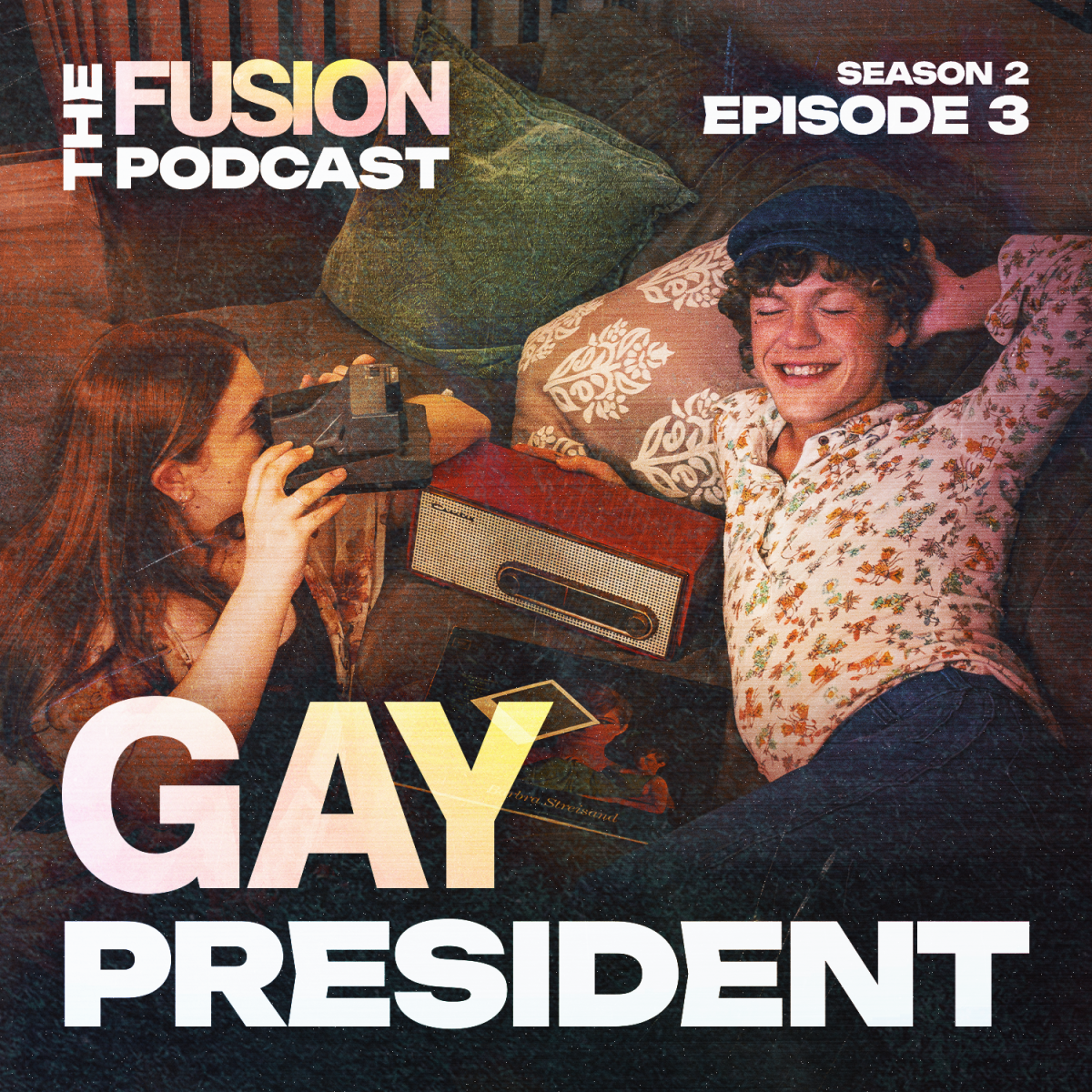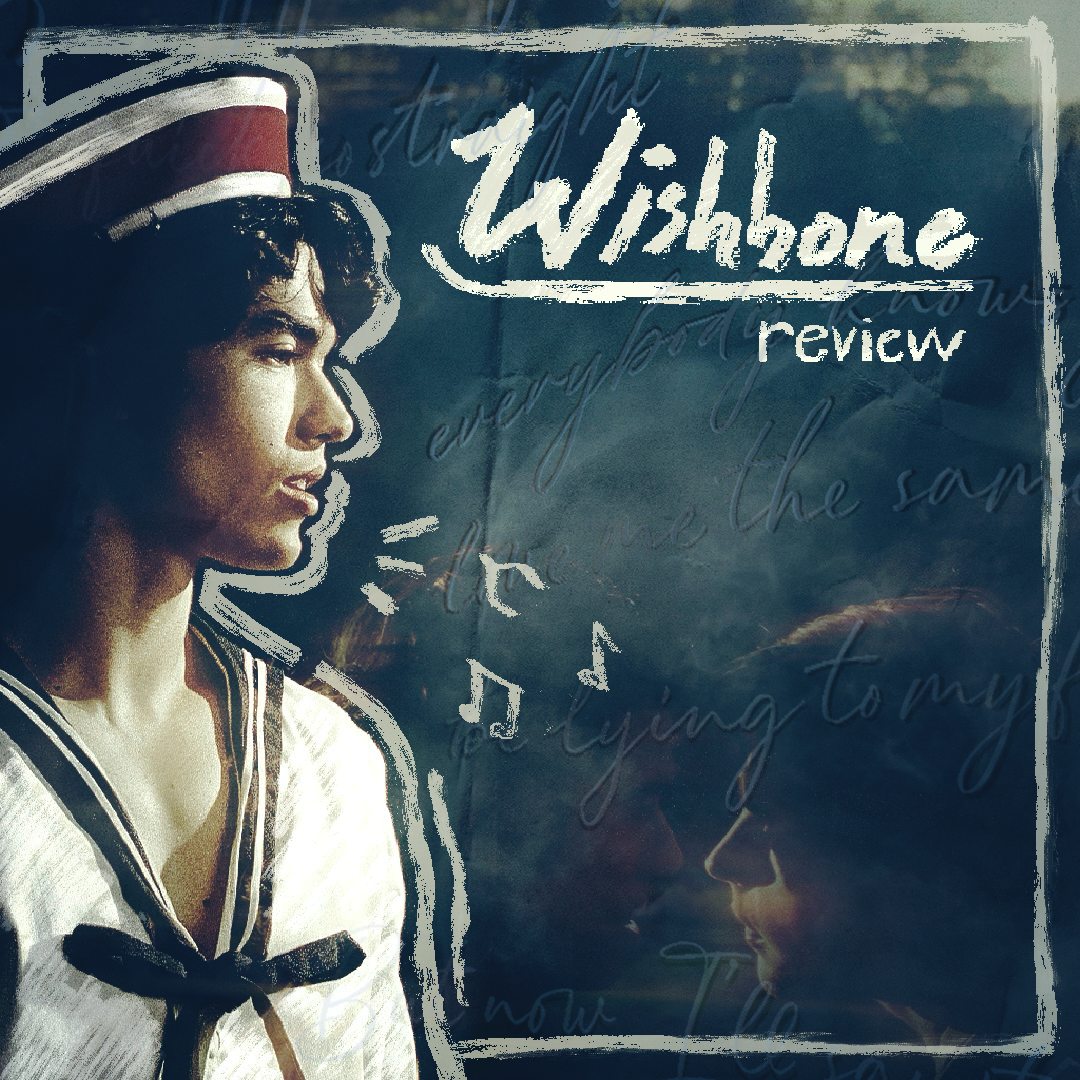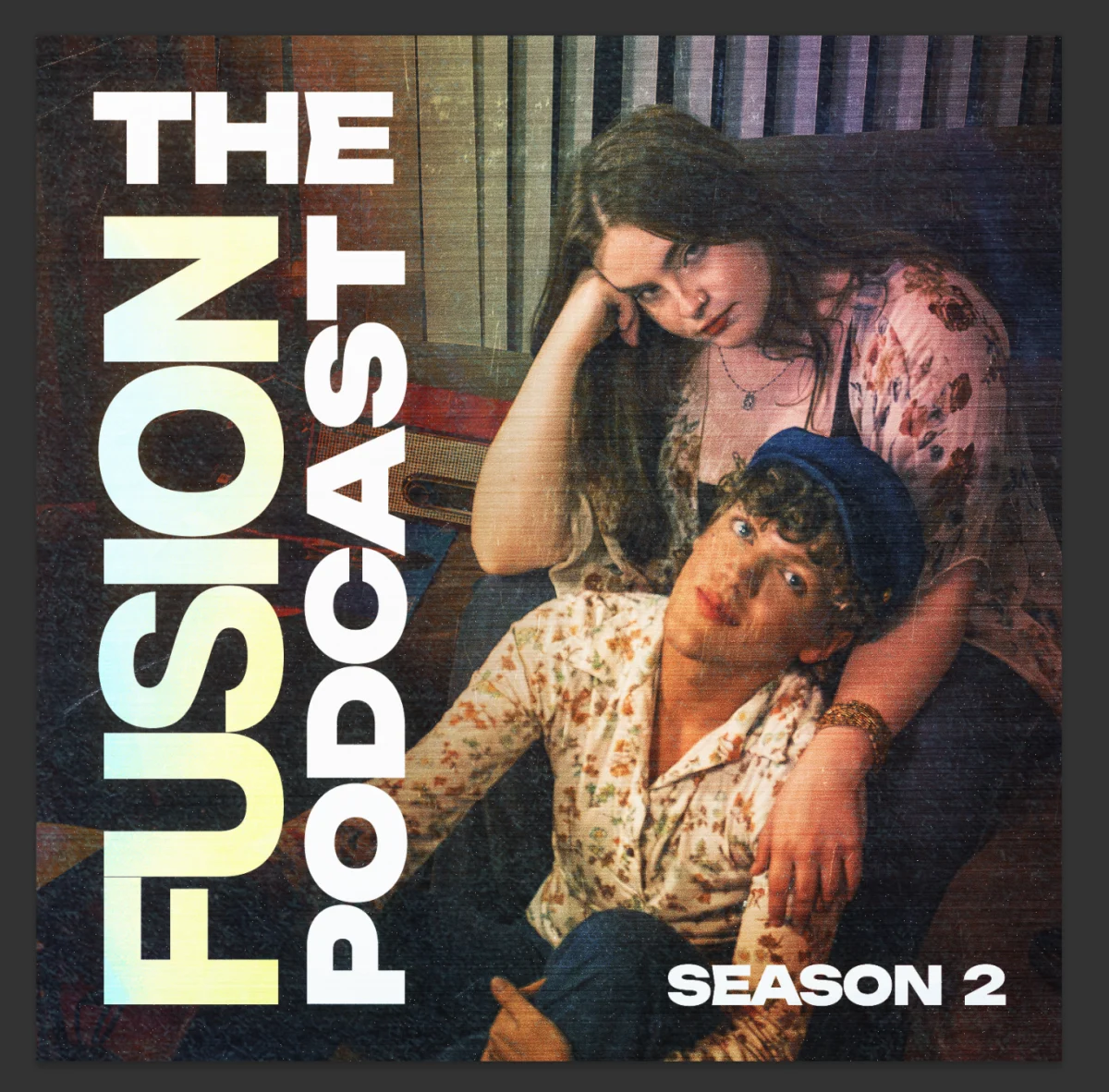She walks down the same high school hallways and sees the same faces Monday through Friday. She’s the funny girl everybody can share a good laugh with. She’s outgoing and likes to get to know other people, and teachers respect her because she’s not afraid to speak up in class. She has even gained some local fame from singing her lungs out with her band almost every weekend.
But in the same hallways where Maddie Finn, 18, of Ravenna is loved, respected and even sometimes idolized, she gets called a “fag” and, suddenly, Maddie’s teachers and so-called friends turn the other cheek and pretend it never happened.
“My school is very John Deere,” Maddie said. “We drive trucks to school, and I know there are a lot of kids like me who are gay, but we’re just not represented at all.”
As a high school senior, Maddie is not afraid to share the life she’s been given. Attending Maplewood Career Center, a high school in Ravenna, Maddie lives proudly as a young lesbian in a small, conservative town, and like a lot of LGBT students Maddie’s age, she has experienced her fair share of bullying.
Smiling when she speaks and laughing lightly when she makes a joke, Maddie shifts her large, black-framed glasses closer to her eyes. While brushing a couple pieces of her neatly styled, spiky black hair behind her ear, she said she’s been a musician for as long as she can remember. Her band has even opened for big names like Paramore and New Found Glory.
“I played percussion; I sing in my band along with guitar and piano,” Maddie said. “I was actually identified as musically gifted in first grade, so I guess you could say that music is my life.”
Music isn’t the only gift driving Maddie to be the best person she can be. She’s also a very good leader. She’s already heavily involved in PRIDE! Kent.
Compared to her experience at Kent State, Maddie said teachers and school leaders should be doing a lot more to support LGBT students.
“You’re a teacher regardless of your political or moral beliefs — you’re there to protect a child,” Maddie said. “I’ve never been assaulted, but that’s because I’m a likeable person and I have my music. Other kids don’t have it so easy.”
Maddie has tried to create a GSA (Gay-Straight Alliance) in her school, but “it either just gets pushed aside or ignored,” Maddie said. “I’ve even asked teachers if they’d be willing to represent the group, and they’re always too busy.”
One teacher stands out to Maddie as an advocate for her and the other gay students – her psychology teacher.
“In my psychology class, we studied a story on a transgender person, and half of the class just laughed all the way through it,” Maddie said. “Anytime you say a word like ‘transgender,’ people just laugh.”
In situations like these, her psychology teacher interjects and asks the students to rethink their reactions. For Maddie and other LGBT students, this teacher acts as a voice of reason.
“I like to see teachers put something like this into place, but it’s only certain teachers,” Maddie said. “If I get called a ‘fag’ in my psychology class, my teacher is going to say something, if the same thing happens in (another) class, nothing is going to happen.”
“I’m not begging for kids to get punished for it, but I’m begging for more awareness. All I can do is hope,” Maddie said.
One woman who aspires to bring LGBT teens like Maddie this kind of hope is Nickie Antonio. A Democrat in Lakewood, Nickie was elected to her state representative office in 2010. She is the only openly gay Ohio lawmaker — a facet that provokes other lawmakers to ask personal questions about Nickie’s daughters, her sexual orientation and her relationship with her partner, Jean Kosmac.
“I’m constantly educating my colleagues,” Nickie said.
One issue on which Nickie focuses her political career is LGBT bullying in public schools and what can be done to reduce it. She co-authored one bill this year that, if passed, would require all Ohio school districts to add protections to their anti-bullying policies for groups targeted on specific traits like race, physical and mental disability, sexual orientation and gender identity or expression.
Public school policies won’t be including protected groups anytime soon though. The bill, H.B. 208, is stuck in committee.
“I wouldn’t say it is dead — It has been ignored,” Nickie said. Nickie explained that lobbyists representing Ohio school boards oppose H.B. 208 because they fear it will only add more rules and liabilities that school officials can’t fulfill. She said opponents often argue that the best solution is to administer vague and broad policies.
The Gay, Lesbian and Straight Education Network finds fault with that argument because their own research in a 2005 study shows inclusive anti-bullying policies have a significant effect on student safety.
The study found that students in middle school and high school with a broad anti-bullying policy were more than twice as likely to be bullied based on the their real or perceived sexual orientation than schools with an anti-bullying policy similar to the one Nickie’s bill proposes. The study, which interviewed 196 Ohio students between sixth and 12th grade, found a similar pattern for bullying based on gender identity or expression, race and physical appearance.
“The bottom line is that (LGBT students are) not feeling the policy is protecting them because they’re still a group that, in general, is a more vulnerable group than we know,” Nickie said.
[toggle title_open=”Close Me” title_closed=”Quick Numbers About Ohio Public Schools:” hide=”yes” border=”yes” style=”default” excerpt_length=”0″ read_more_text=”Read More” read_less_text=”Read Less” include_excerpt_html=”no”]93 percent of Ohio students said they’ve heard homophobic remarks sometimes, often or frequently among peers. Students heard negative remarks about gender expression almost just as frequently.
29 percent of Ohio students said they’ve heard school personel make homophobic remarks and 25 percent said they’ve regularly heard negative remarks, about gender expression from a school official.
Only 8 percent of Ohio students attend a high school or middle school with a comprehensive anti-bullying policy that includes harassment based on sexual orientation and gender identity or expression.
Only 7 percent of Ohio students said their school taught positive representations of LGBT people, history and or events.
Source: The Gay, Lesbian and Straight Education Network surveyed a total of 258 high school and middle school students from Ohio for their 2009 National School Climate Survey. To read more on what they found, visit www.glsen.org.
[/toggle]
Ohio has more than 600 school districts and more than 600 different types of schooling situations, said Jill Jackson, spokesperson for the Ohio Department of Education, who works under the anti-harassment, anti-intimidation and anti-bullying department.
Ohio is a local control state, meaning each district implements its own anti-bullying and anti-harassment policies.
“If a certain school district has more GLBTQ bullying and intimidation, then we come in and offer the training they need,” Jill said.
Brooklyn High School, located near Cleveland about 40 miles northwest of Maddie’s school in Ravenna, represents one of Ohio’s school districts that has implemented a very strategic and strong anti-bullying policy, including solid LGBT verbiage.
Robert Kelber, a junior level English teacher at Brooklyn High School, teaches an argumentative and persuasive writing unit each year that deals with topics like stereotypes, race, power, gender, religion and, added about five years ago, hot button topics surrounding sexual orientation like gay marriage, gay adoption and gay bullying.
“We’ll tackle all of the different ‘isms’, if you will, in a matter of four weeks,” Robert said.
At the beginning of last semester’s five week unit in his English class, Robert distributed an anonymous bully-themed survey to 50 students. In the survey, he asked each student whether he or she identified with the LGBT community, and if not, was he or she an ally?
Only two students said they were associated with the LGBT community, while all other students identified as an ally.
“When it comes to tolerance,” Robert said, “I’m always shocked to see how many of (the students) are supportive of the issues.”
Like Maddie’s high school, Robert’s school is also located in the suburbs with only a little over 500 students. Robert says a previous principal implemented this unit into the English department about six years ago. Lesbian and gay issues are also openly discussed in the freshman level health classes, Robert says.
“So many schools are afraid to teach these topics in this day and age, and I think that’s just sad,” Robert says. “They should be willing to keep an open mind.”
Brooklyn High School imposes a strong LGBT support network that is missing at Maddie’s school. It won’t be long, however, until Maddie finds the support she needs at Kent State. She’ll be studying hospitality management in the fall with a minor in public relations.
“But come on, my major is probably going to change at least four times!” Maddie says, laughing.
Anticipating a Resident Assistant (RA) position and a spot on student government at Kent State, Maddie hopes to raise awareness of bullying and stop it in its tracks. She says, “when I’m here, I want to do something to make a change, to make things better. And I’m very, very excited!”
Maddie advises other high school students who are struggling with a bully to focus on their academics because “you have to realize that once you graduate,” Maddie says, “you’re probably never going to see those people again. When you tune that stuff out, it makes a world of difference.”
Photos by Kristin Bauer.
Contributed Reporting by Simon Husted.


